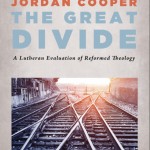In traditional Federal theology, a distinction is made between a covenant of works and a covenant of grace. All Biblical covenants are read through the lens of this distinction. Typically, the relationship between God and man in the Garden of Eden is considered a covenant of works, wherein Adam merits life by his obedience (an idea I have critiqued here). There is then an overarching covenant of grace, extending through the promise given to Adam and Eve in Genesis 3:15, through the Abrahamic promise, the Davidic covenant, and the New Covenant. These are not different covenants, but reiterations of the same.
There has been an extensive amount of debate within Reformed circles over the nature of the Mosaic covenant. Some view the Mosaic covenant as another iteration of the covenant of grace. This is based on the fact that God’s grace in releasing the Jews from Egypt stands as the basis of God’s covenant with his people, and thus the law was not given to merit anything per se, but simply to God the people who have already been redeemed (see, for example the prologue to the Ten Commandments which is based in God’s deliverance). Others argue that the Mosaic covenant is actually a covenant of works, a republication of the covenant that God made with Adam. The obedience of the people determined their standing within the land of Palestine, just as Adam’s place in Eden was determined by his merit. The Mosaic covenant then is opposed to the covenant of grace. This position utilizes passages such as Galatians 3-4 in which Paul argues extensively that salvation is tied, not to the Mosaic law, but the Abrahamic promise.
Within these two positions, there are then a variety of different views. Some, such as Rich Lusk, argue that the law of Moses never demanded perfect obedience, and contained a remedy for sin within the sacrificial system. It is thus a pure covenant of grace. On the other hand, some, such as theologian from the Westminster Escondido tradition, tend to emphasize only the condemnatory aspects of the law, thus almost negating the sense that the Mosaic covenant is a covenant of grace. Most are probably somewhere in the middle, and end up having to say that the Mosaic covenant is “in some sense” a covenant of grace and “in some sense” a covenant of works.
I’ve followed these debates for some time, and at one time was involved in them myself, taking a firm “republication” position as a Reformed Christian. But the longer I have been away from the Reformed tradition, the more I have seen the inadequacy of such a covenantal framework. The discussions about the Mosaic covenant are extremely convoluted, and it shows a weakness in Reformed theology: the covenant of works-grace distinction simply doesn’t fit the Biblical data. The Mosaic covenant doesn’t really fit into either category, and Reformed theologians are so divided on this issue because there is no clear answer. The positions on both sides have good points. There are gracious promises in the Mosaic covenant. There is also law in the Mosaic covenant. But there is no need to fit it into some overarching covenantal schema that is, frankly, absent in the New Testament.
Paul’s argument in Galatians is not that the covenant with Moses was bad, and the covenant with Abraham was good; rather, he is distinguishing between two specific things: the law of Moses, and the promise given to Abraham. The distinction is not one between two overarching covenants, but between God’s two words: law and gospel-command and promise. Thus, we don’t need to create such confusing categories when discussing the Old Testament Mosaic economy. One can simply say: the Mosaic covenant included both law (in all three uses) and gospel. The Abrahamic promise of Genesis 12 and 15 was simply a word of gospel. That doesn’t negate the fact that Abraham is later given law that he must obey, nor does it mean that the fulfillment of the promise was in any way dependent upon his obedience.
There is no doubt that “covenant” is a Biblical category. There are many covenants in Scripture, and they are in some sense connected with one another. Yet, a strong bifurcation of a covenant of works and a covenant of grace is simply not in the Biblical text. One can only come to such conclusions after imposing such a hermeneutic on the text. The distinction made by Paul is that between the promise and the law. Why not simply use that distinction, which is much more understandable to the average Christian in the pew, then complicating it with unnecessary categories?












